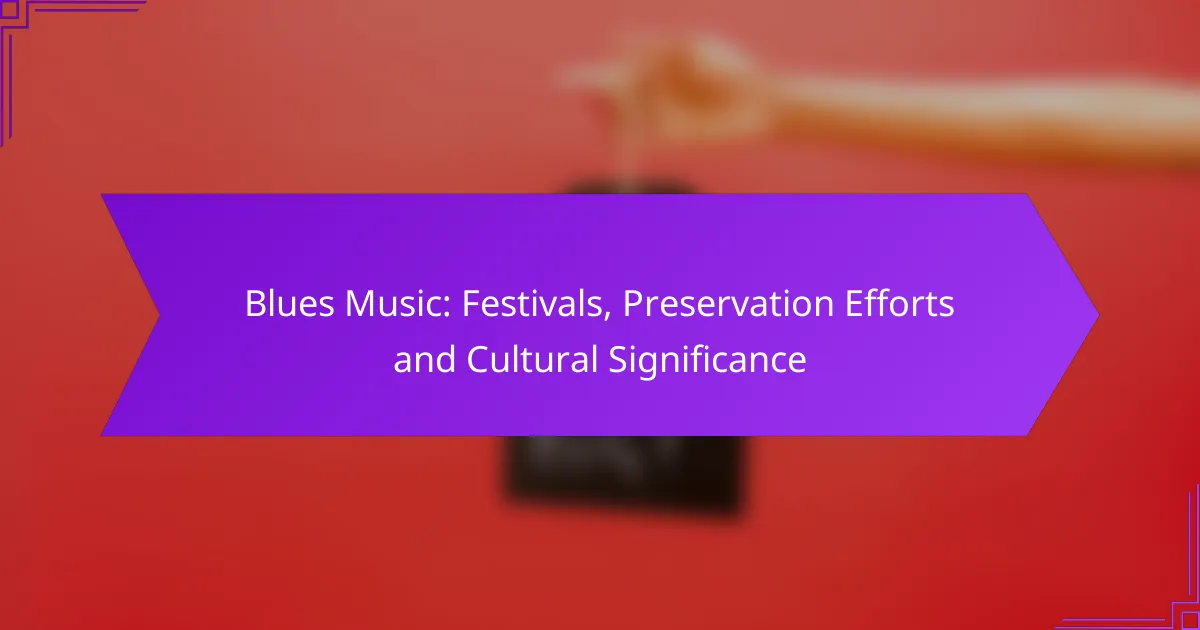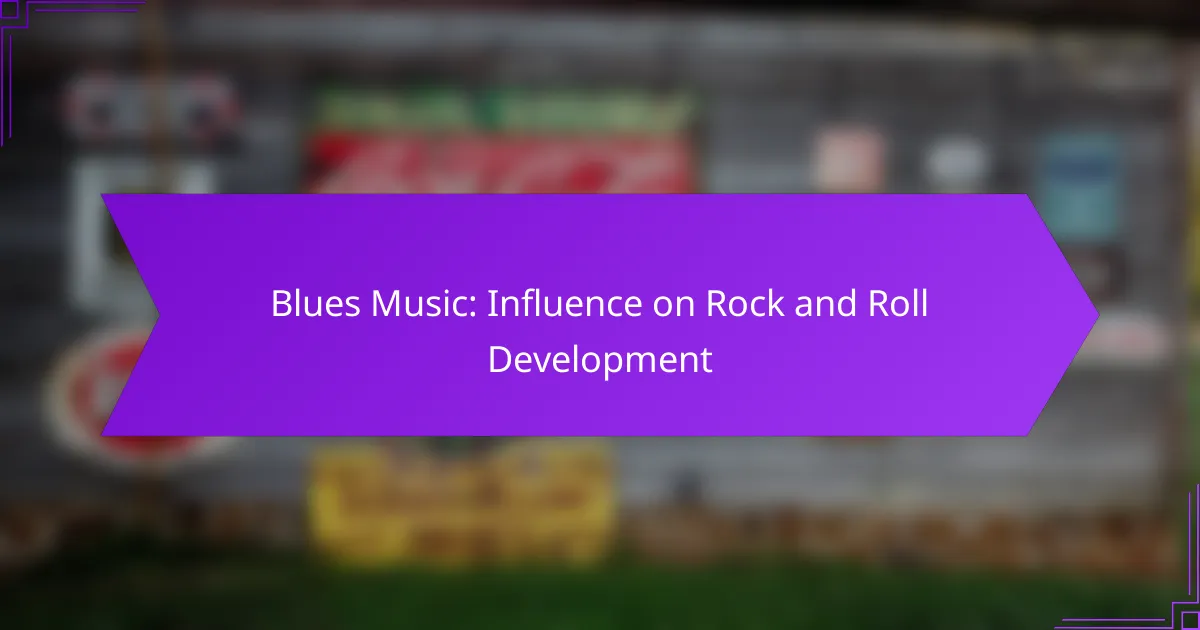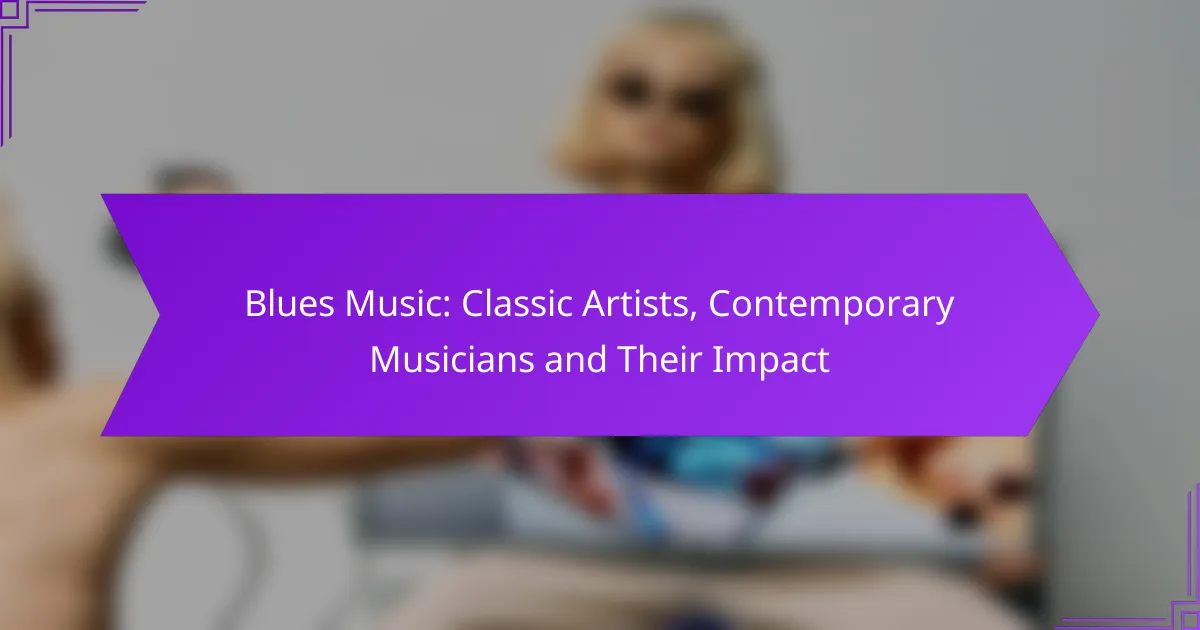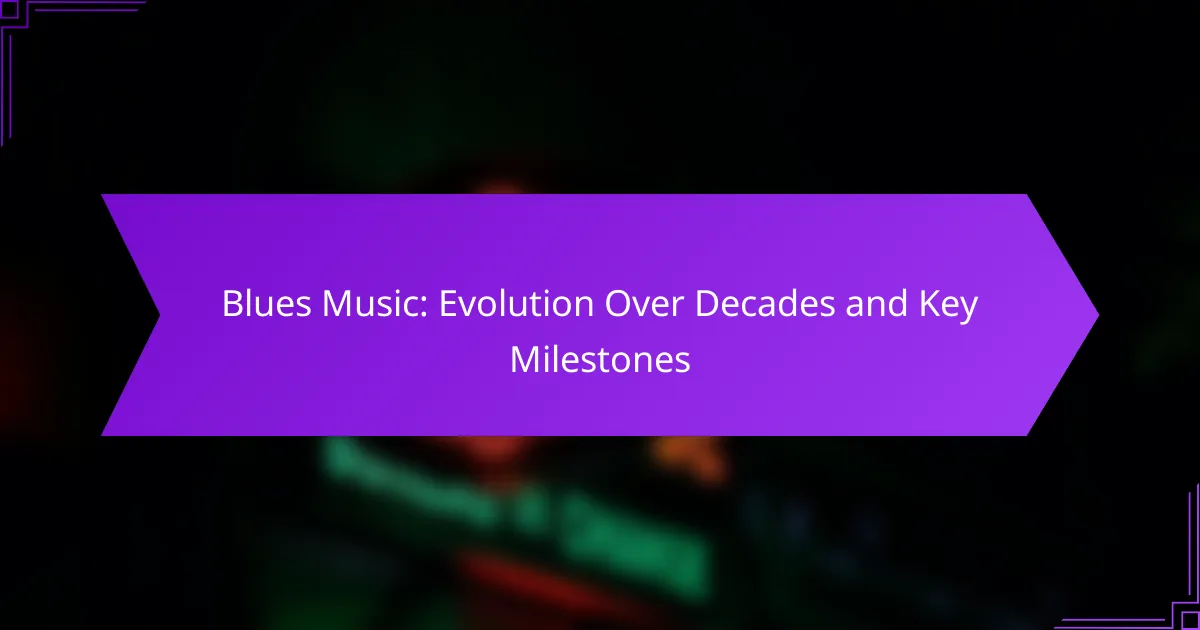Blues music festivals across the United States serve as vibrant celebrations of the genre’s rich heritage, featuring renowned events like the Chicago Blues Festival and New Orleans Jazz & Heritage Festival. These festivals not only showcase talented artists but also play a crucial role in preserving the cultural significance of blues music, fostering community engagement and appreciation for its historical roots.
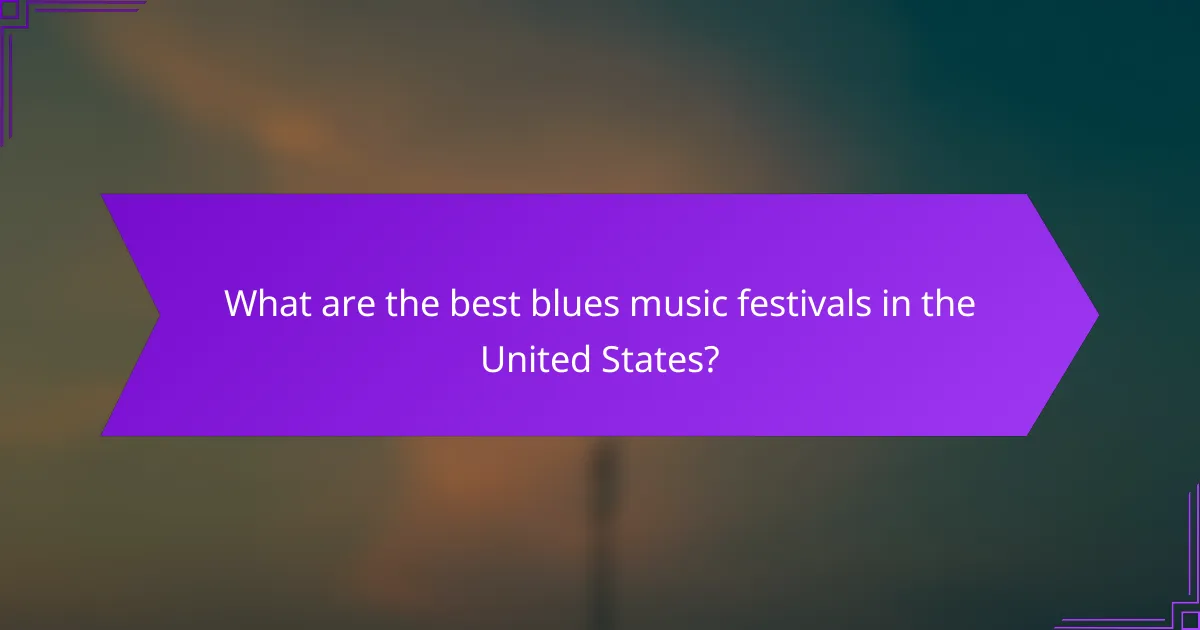
What are the best blues music festivals in the United States?
The United States hosts several renowned blues music festivals that celebrate the genre’s rich heritage and vibrant community. Key festivals include the Chicago Blues Festival, New Orleans Jazz & Heritage Festival, King Biscuit Blues Festival, Memphis in May International Festival, and Blues on the Fox Festival, each offering unique experiences and lineups.
Chicago Blues Festival
The Chicago Blues Festival is one of the largest and most celebrated blues festivals in the country, typically held in June. It features a diverse lineup of both established and emerging artists, showcasing the city’s deep blues roots. Admission is often free, making it accessible to all music lovers.
Visitors can enjoy performances across multiple stages in Grant Park, along with food vendors and art exhibits that highlight Chicago’s cultural scene. Plan ahead for accommodations, as the festival attracts large crowds.
New Orleans Jazz & Heritage Festival
The New Orleans Jazz & Heritage Festival, commonly known as Jazz Fest, takes place in late April and early May. While it encompasses various genres, blues music plays a significant role in its lineup, reflecting the city’s musical heritage. The festival offers a mix of local and national artists, creating a vibrant atmosphere.
Attendees can savor local cuisine, arts and crafts, and cultural presentations alongside the music. Purchasing tickets in advance is advisable, as this festival often sells out quickly.
King Biscuit Blues Festival
Held in Helena, Arkansas, the King Biscuit Blues Festival is a premier event celebrating blues music every October. Named after the famous radio show, it features a variety of artists performing on multiple stages. The festival is known for its welcoming atmosphere and strong community involvement.
In addition to music, attendees can enjoy food vendors and craft booths. It’s a great opportunity to experience the local culture and connect with fellow blues enthusiasts.
Memphis in May International Festival
The Memphis in May International Festival is a month-long celebration that includes the Beale Street Music Festival, where blues takes center stage. This festival typically occurs in early May and features a diverse lineup of artists across various genres, including blues legends and contemporary acts.
Festival-goers can explore local cuisine and cultural exhibits, making it a comprehensive experience of Memphis’ rich heritage. Early ticket purchases are recommended due to high demand.
Blues on the Fox Festival
Blues on the Fox Festival, held in Aurora, Illinois, is a family-friendly event that takes place in June. This festival features a mix of local and national blues artists, providing a platform for both established musicians and newcomers. The festival atmosphere is relaxed, making it enjoyable for all ages.
In addition to music, the festival offers food vendors and activities for children. Attendees should consider arriving early to secure good viewing spots and enjoy the full range of offerings.
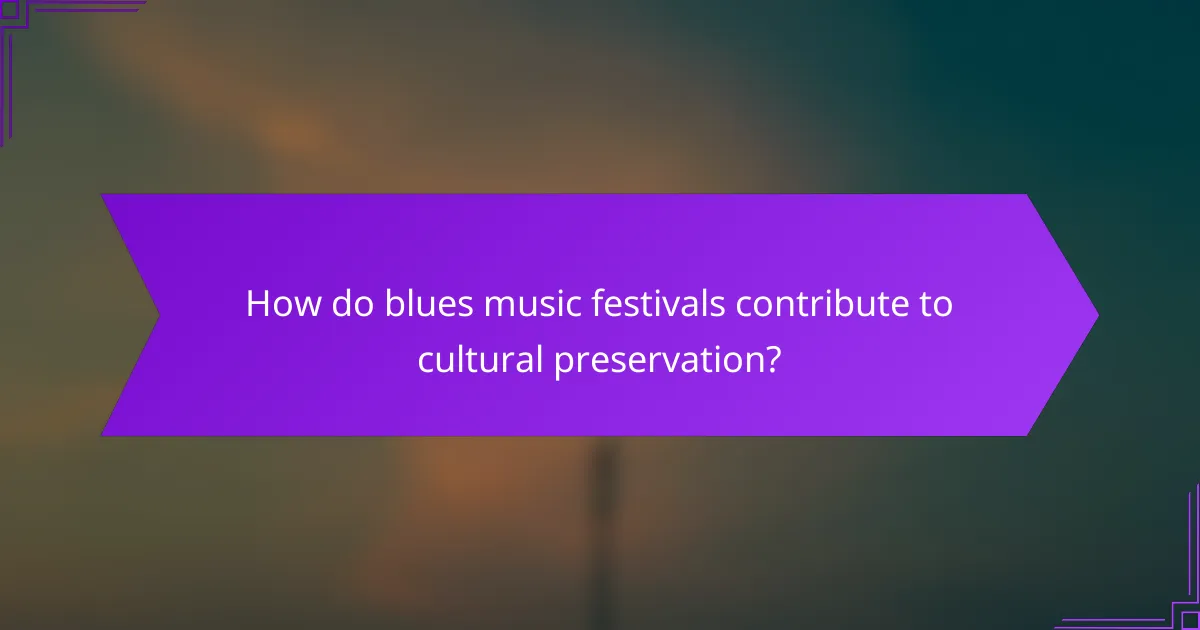
How do blues music festivals contribute to cultural preservation?
Blues music festivals play a vital role in preserving the cultural heritage of blues by celebrating its history, showcasing artists, and engaging communities. These events not only highlight traditional sounds but also foster a deeper appreciation and understanding of the genre’s roots.
Showcasing traditional blues artists
Blues festivals often feature performances by both established and emerging traditional blues artists, providing them a platform to share their music. This exposure helps maintain the genre’s authenticity while introducing new audiences to its rich history. Festivals like the Chicago Blues Festival or the King Biscuit Blues Festival are prime examples where artists can perform and connect with fans.
By prioritizing traditional styles and sounds, these festivals ensure that the techniques and stories of blues music are passed down through generations. This not only preserves the music but also honors the cultural narratives that accompany it.
Encouraging community engagement
Blues music festivals serve as a gathering point for local communities, fostering a sense of belonging and shared identity. They often include local vendors, food stalls, and art displays, which engage attendees in a holistic cultural experience. This communal atmosphere strengthens ties among residents and promotes local pride.
Moreover, festivals can attract visitors from outside the community, boosting local economies and encouraging cultural exchange. This influx of diverse audiences can lead to increased interest in local blues heritage, further enhancing preservation efforts.
Providing educational workshops
Many blues festivals incorporate educational workshops that teach attendees about the history, techniques, and cultural significance of blues music. These sessions often feature hands-on experiences, such as instrument demonstrations or songwriting classes, led by experienced musicians. This practical approach helps demystify the genre and makes it accessible to all.
Workshops can also address the social and historical contexts of blues, highlighting its role in the civil rights movement and other cultural shifts. By educating participants, festivals ensure that the legacy of blues music continues to resonate and inspire future generations.
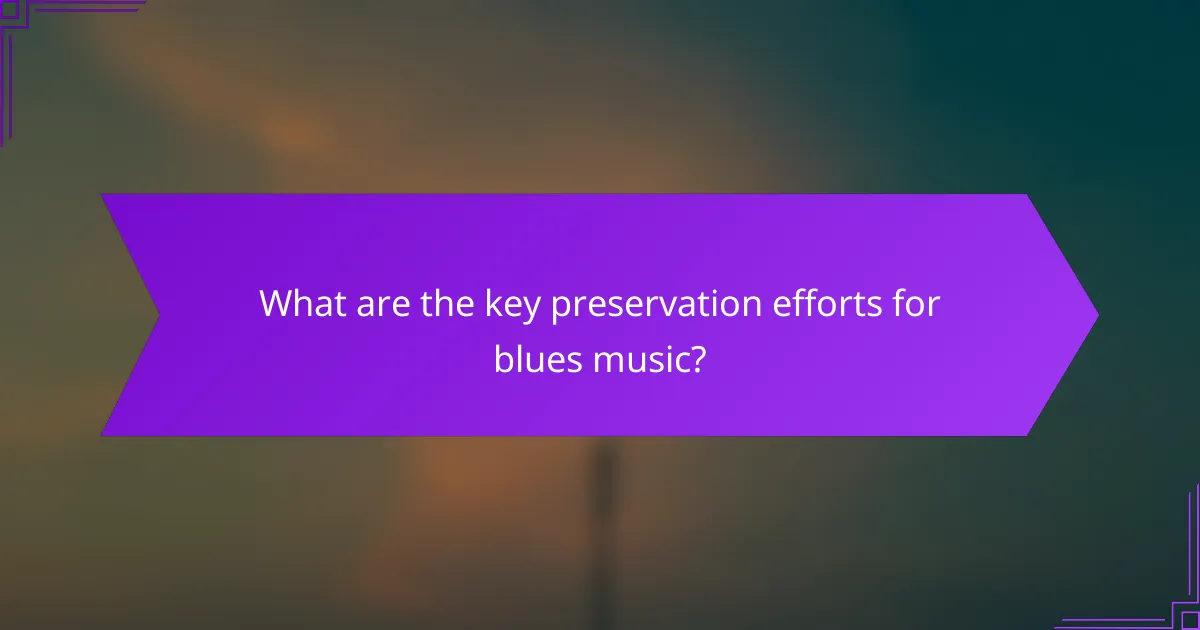
What are the key preservation efforts for blues music?
Key preservation efforts for blues music focus on maintaining its cultural heritage through various initiatives, education, and documentation. These efforts aim to ensure that the history and significance of blues music are recognized and passed down to future generations.
Blues Hall of Fame initiatives
The Blues Hall of Fame plays a crucial role in preserving blues music by recognizing and honoring influential artists and contributors to the genre. Through induction ceremonies and exhibitions, it highlights the achievements of blues musicians, helping to educate the public about their impact on music and culture.
Additionally, the Hall of Fame organizes events and programs that promote blues music, such as workshops and performances. These initiatives foster a deeper appreciation for the genre and encourage new artists to explore its roots.
Local music education programs
Local music education programs are vital for the preservation of blues music, as they introduce young musicians to its history and techniques. Many community centers and schools offer classes that focus on blues guitar, harmonica, and songwriting, ensuring that the skills and traditions are passed on.
These programs often collaborate with local musicians who share their expertise and experiences, providing students with authentic insights into the genre. By engaging youth in blues music, these initiatives help sustain its legacy and inspire future generations of artists.
Documentary projects on blues history
Documentary projects dedicated to blues history serve to capture and share the stories of influential artists and the evolution of the genre. These films and series often feature interviews, archival footage, and performances that highlight the cultural significance of blues music.
Such projects can be instrumental in raising awareness about the challenges faced by blues musicians and the importance of preserving their contributions. By documenting these narratives, filmmakers help ensure that the rich history of blues music remains accessible and appreciated by audiences worldwide.
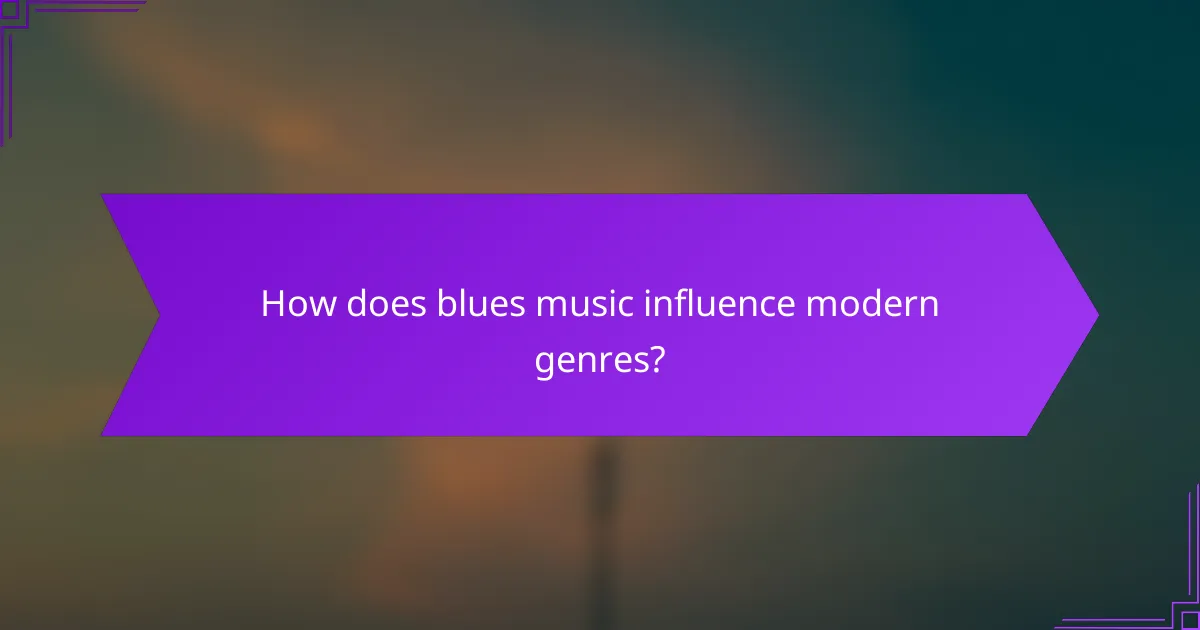
How does blues music influence modern genres?
Blues music significantly shapes modern genres by introducing emotional depth, improvisation, and distinctive rhythms. Its influence can be seen across various styles, including rock, hip-hop, and pop, where elements of blues are woven into the fabric of contemporary sound.
Impact on rock music
Blues has been a foundational element of rock music, with many rock artists drawing directly from its chord progressions and lyrical themes. The classic 12-bar blues structure is prevalent in rock, allowing musicians to explore emotional storytelling through their songs.
Notable rock bands, such as The Rolling Stones and Led Zeppelin, have incorporated blues riffs and styles, showcasing the genre’s enduring legacy. This connection has led to a rich fusion of sounds, creating a diverse musical landscape that continues to evolve.
Influence on hip-hop
Hip-hop artists often sample blues music, using its soulful melodies and rhythms to create a deeper emotional resonance in their tracks. The storytelling aspect of blues aligns well with hip-hop’s lyrical focus, allowing artists to convey personal narratives and social commentary.
Collaborations between blues musicians and hip-hop artists have become more common, bridging the gap between these genres. This synergy highlights the versatility of blues and its ability to adapt to modern musical forms while retaining its core essence.
Integration into pop music
Pop music frequently incorporates blues elements, from vocal styles to instrumental arrangements. Many pop hits feature bluesy guitar riffs or emotional vocal deliveries that echo the genre’s influence, making it accessible to a broader audience.
Artists like Adele and John Legend have successfully blended blues with pop, showcasing how the genre can enhance mainstream music. This integration not only preserves blues traditions but also introduces them to new generations, ensuring its continued relevance in the music industry.
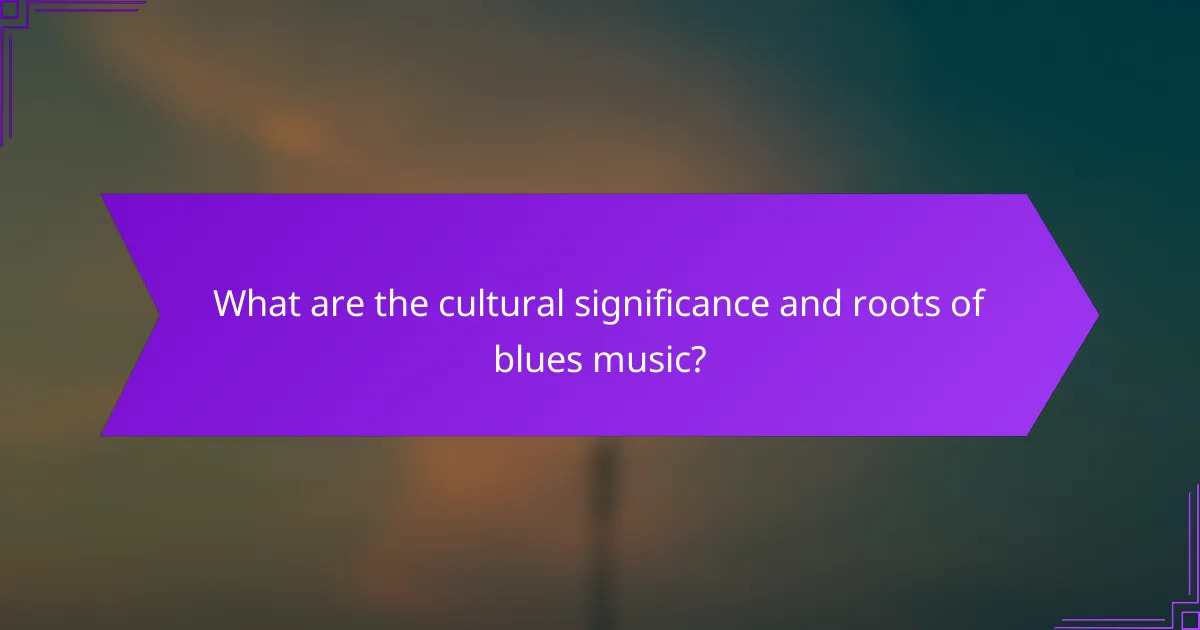
What are the cultural significance and roots of blues music?
Blues music holds deep cultural significance as it reflects the struggles and resilience of African American communities. Its roots trace back to the late 19th and early 20th centuries, intertwining with the social and historical contexts of the time.
Origins in African American history
The origins of blues music are closely linked to the African American experience, particularly in the Southern United States. Emerging from spirituals, work songs, and folk traditions, blues served as a form of expression for the hardships faced by African Americans, including slavery and segregation.
In the early 1900s, blues began to gain popularity in urban areas, particularly in cities like Memphis and Chicago. Artists like B.B. King and Muddy Waters played pivotal roles in shaping the genre, bringing the sounds of the Delta blues to a wider audience.
Connection to social movements
Blues music has historically been intertwined with social movements, serving as an anthem for civil rights and social justice. Songs often addressed themes of oppression, resilience, and hope, resonating with the struggles of African Americans during the Civil Rights Movement.
Notable figures, such as Billie Holiday with her song “Strange Fruit,” highlighted the brutal realities of racism and violence, making blues a powerful tool for advocacy and change. The genre continues to inspire contemporary movements, reflecting ongoing social issues.
Role in American folklore
Blues music plays a crucial role in American folklore, preserving stories and experiences that shape the national narrative. It captures the essence of life in the South, weaving tales of love, loss, and perseverance that resonate across generations.
Through its rich storytelling tradition, blues has influenced various other genres, including rock and roll and jazz, solidifying its place in the cultural fabric of the United States. Festivals celebrating blues music, such as the Chicago Blues Festival, further promote this heritage and keep the stories alive.
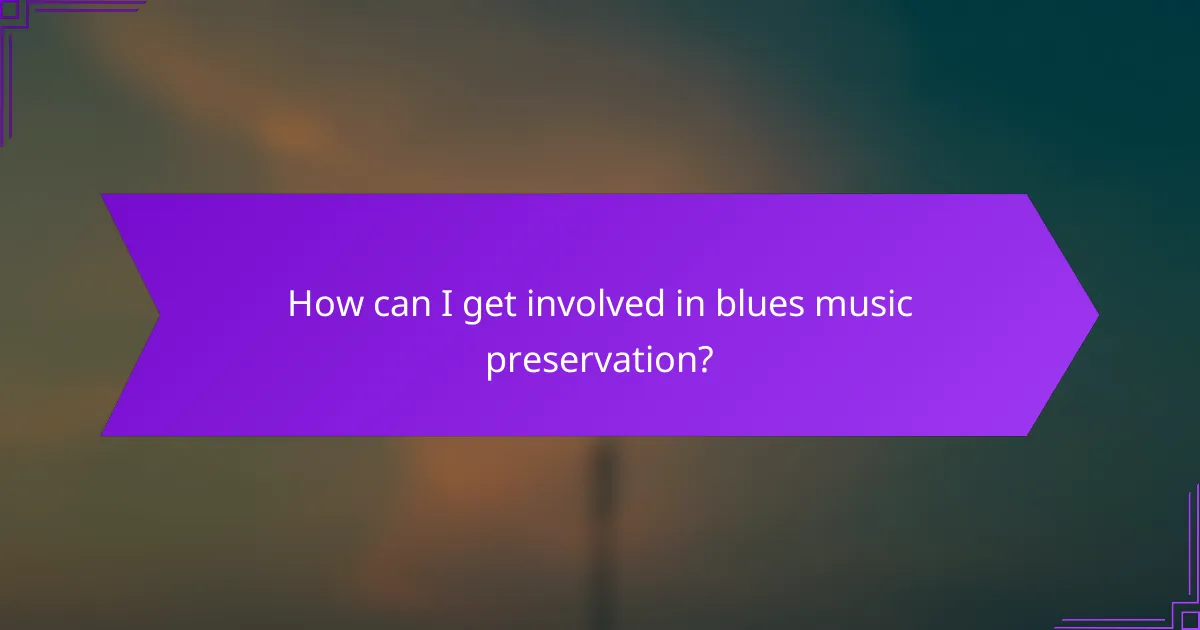
How can I get involved in blues music preservation?
Getting involved in blues music preservation can be done through various avenues, including supporting local musicians, participating in festivals, and joining preservation organizations. Engaging with the community and promoting the genre helps ensure its survival for future generations.
Support local blues musicians
One of the most effective ways to preserve blues music is by supporting local artists. Attend their performances, purchase their music, and promote their events through social media. This direct support helps sustain the artists and keeps the genre vibrant.
Consider joining local music clubs or organizations that focus on blues. These groups often host events and provide platforms for emerging artists, fostering a community around the music.
Participate in blues festivals
Blues festivals are significant cultural events that celebrate the genre and its history. Participating in these festivals, whether as an attendee or a volunteer, contributes to the preservation efforts. Many festivals also offer workshops and discussions that educate attendees about the blues’ roots and evolution.
Look for festivals in your area or consider traveling to renowned events like the Chicago Blues Festival or the New Orleans Jazz & Heritage Festival. Engaging with these events can deepen your appreciation and understanding of blues music.
Join preservation organizations
Numerous organizations focus on preserving blues music, such as the Blues Foundation and local heritage societies. Joining these organizations can provide you with resources, networking opportunities, and ways to contribute to preservation efforts.
Many of these groups offer volunteer opportunities, educational programs, and events that promote blues music. Being part of a preservation organization can amplify your impact and connect you with like-minded individuals passionate about the genre.
